时间:2021-10-29 10:42:46来源: 德国新闻网
The Chinese military hopes the United States can reconstruct a correct view of China, adopt rational and practical China-related policies, and work with China to jointly promote the healthy development of China-U.S. military-to-military relations, the Ministry of National Defense said on Thursday.
Senior Colonel Tan Kefei, a spokesman for the ministry, said in a news briefing that how to improve China-U.S. relations is the "question of the century", and military relations are a key component of bilateral ties.
Tan said that maintaining strategic communication and enhancing dialogue and cooperation between the two militaries is mutually beneficial.
For example, at the end of September, China and the U.S. held their 16th working meeting between their defense departments, and both sides have thoroughly and pragmatically discussed issues of mutual concern, Tan said.
Some key points on which consensus was reached during the dialogue include that maintaining stable China-U.S. military relations is in the interest of both nations, the two militaries should enhance crisis management and trust-building measures, and both sides have exchanged their opinions on policies that are affecting bilateral military ties.
However, at the same time, certain U.S. officials are hyping up the so-called "Chinese military threat" to justify the U.S.' own military expansion and global military hegemony, Tan said.
"The world has suffered long enough under the reign of hegemony," he said. "With its military might, the U.S. has frequently ignored international law and basic principles in international relations to launch war, secession and confrontation."
For years, the U.S. has erroneously labeled China as its biggest competitor and systematic threat, and has adopted a maximum pressure policy against China, he said.
"U.S. attempts to coerce and triumph with might are perilous behavior that not only will escalate the risk of confrontation between the two nations and threaten regional and world peace, but ultimately will backfire and harm the U.S. itself," Tan said.
One recent ramification of U.S. actions is the USS Connecticut, a Seawolf-class nuclear-powered submarine that collided with an "unknown object" in the South China Sea, injuring 11 crew members.
"The U.S. should seriously address the concerns of various parties, be responsible and provide a thorough and satisfying explanation of the incident as soon as possible to the international community and countries in the region," Tan said.
"If the U.S. keeps using the old engine from the Cold War, it will never catch up with the new journey of world peace and development," Tan said. "We advise the U.S. to abandon its outdated Cold War and zero-sum game mentalities, rationally and objectively perceive China's defense and military development, and contribute to maintaining world and regional peace and stability."
In a recent interview with CNN, Taiwan leader Tsai Ing-wen claimed the island has faced a growing threat from the Chinese mainland. She also acknowledged the presence of U.S. troops on the island.
Ma Xiaoguang, a spokesman for the Taiwan Affairs Office of the State Council, said on Thursday that Tsai's granting of the interview to CNN has exposed her stubborn intent of "Taiwan independence".
"Since taking office, the (Democratic Progressive Party) authorities have been incompetent in governance and people's livelihoods are in grievance. But they have been obsessed with creating conflicts, clamping down on speech, deceiving people, dividing Taiwan society and frantically suppressing dissidents," he said.
Taiwan question
By "rejecting unification with arms" and "relying on the U.S. for 'independence'", they are taking the hard-earned money of the Taiwan people to buy weapons, which will only bring damage to the interests of people and bring military disaster to the island, he said.
Wang Wenbin, a spokesman for the Foreign Ministry, said on Thursday, in response to Tsai's claims, that the one-China policy is the political foundation of Sino-U.S. relations.
Wang said the U.S. military has recently repeatedly stirred up trouble by "flexing its muscles" in the Taiwan Straits, sending serious false signals to "Taiwan independence" forces and threatening regional peace and stability.
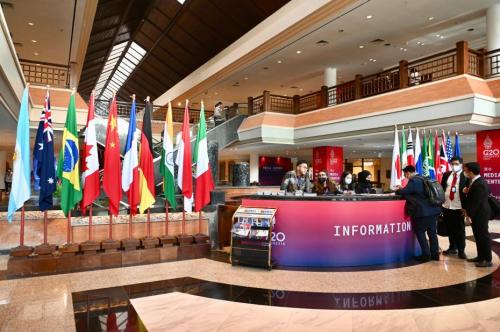
EconoScope | China's commitment inspires, empowers global growth
2024-11-21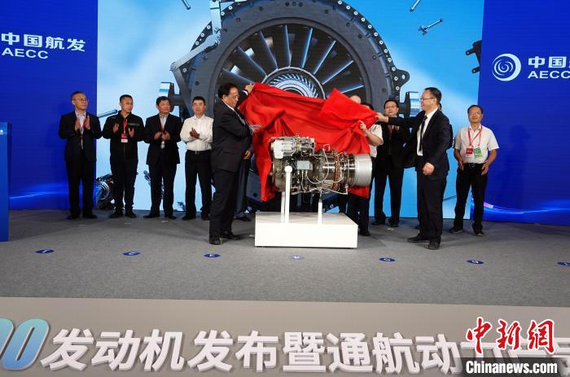
Tech Frontier | China's new AES100 aircraft engine launched at 15th Airshow China
2024-11-16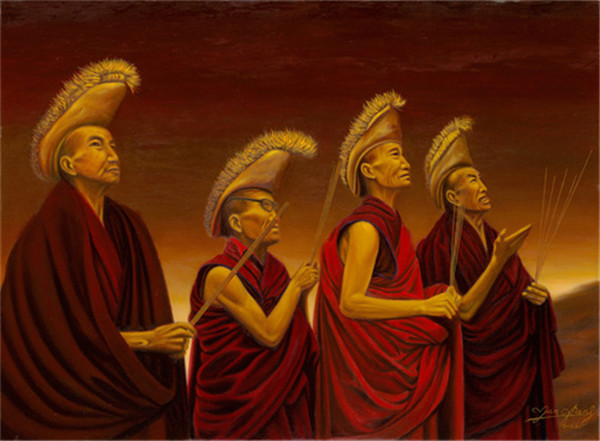
President Trump and the oil painting Prayer by a Chinese artist
2024-11-13
First unit of Yangqu hydropower station connected to state grid
2024-11-11
Incremental polices stabilize China's real estate market
2024-11-04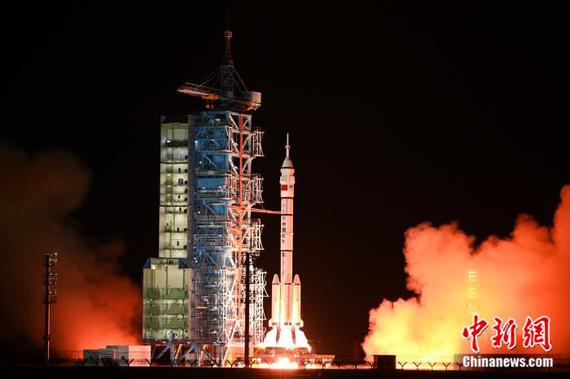
China launches Shenzhou-19 crewed spaceship
2024-10-30
Famous Oil Painter Mr. Zhang Yan and the Icon of the "Smiling Pope": Promoting Dialogue in Religious Culture
2024-10-25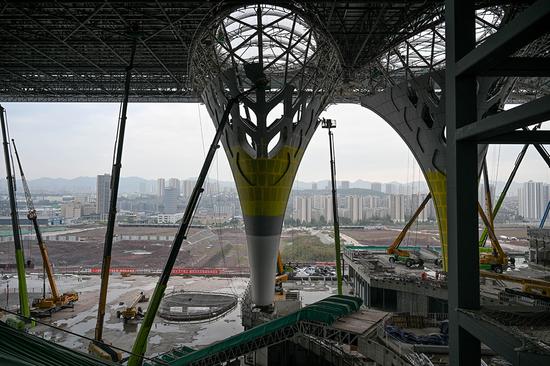
Largest high-speed rail hub in western China aims for 2025 launch
2024-10-24